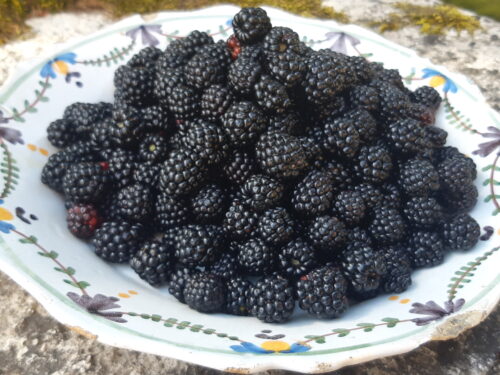
By Francesco Bianchini
Noticing a few neighbors going past our gate, baskets in hand, and heading down the dirt lane, I went to see for myself: had the blackberries there ripened? Halfway along, I realized I’d embarked on a prickly venture without basic precautions. Just lazy, however, I didn’t go back to change my shoes and cover my legs and arms, but walked on in the crystal-clear late afternoon, reminding myself – indeed – that the still and transparent air, the crisp colors, and the golden light etching every leaf, was the very reason why – listening to cmy heart – I’d decided some twenty years ago to live in the southwest of France.
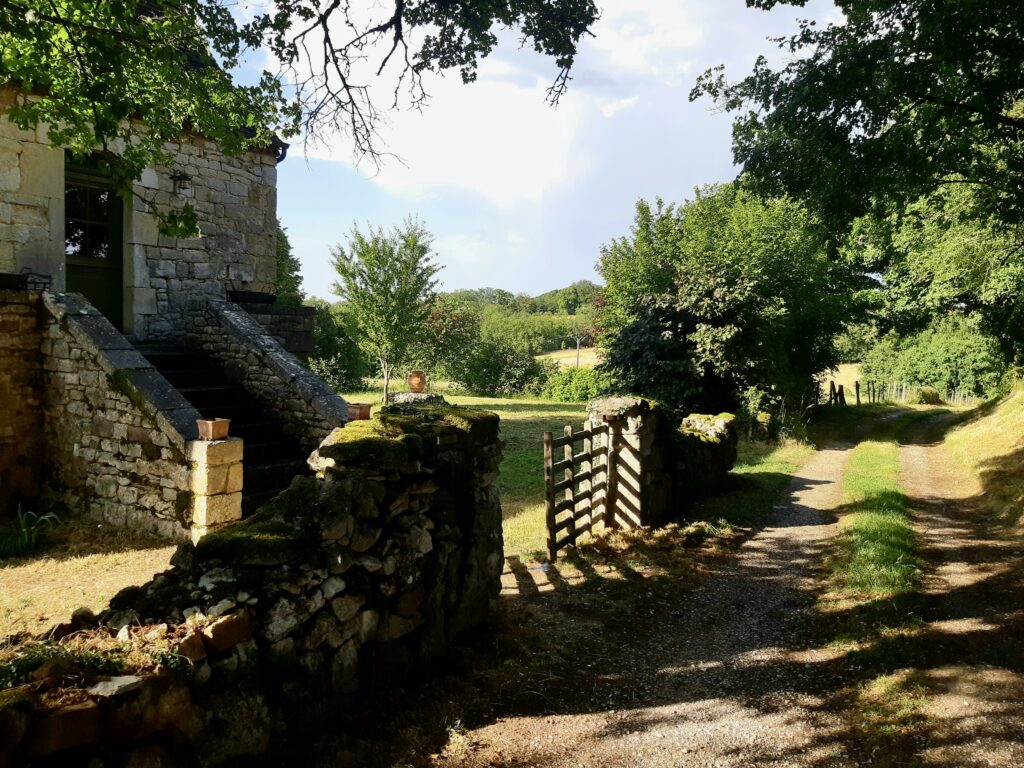 ’Tis the season…
’Tis the season…
I wondered if those who preceded me had left any berries. Luckily, they hadn’t overworked themselves too much, only picking whichever ones they could easily pluck. There were still plenty of them, albeit in less accessible spots. There they shone, black and glossy, boisterous in clusters on the tops of the brambles, and hanging over the rugged, steep verge. Although sweet and caramelized whiffs perfumed the warm air, it was my eyes that prompted the urge to brave the stings and scratches in order to get to them. Yes, some berries were still on the vines, and my palate was already anticipating the aromatic sweetness of the ripened fruit, distinguished from the leathery, sour taste of the unripened, reddish ones.
Aren’t we all kind of magpies, drawn to whatever stands out from the ordinary; things glittering like gems and other precious treasures? Picking blackberries is a bit like scooping up pennies on the pavement; the ones that get stuck in the grooves of a manhole cover. It is the very nature of the elusive, the rare and shy, as hard-to-get as tiny strawberrys and porcini mushrooms lost in forest glades, or wild asparagus sprouting in a roadside ditch. The same is not true of whatever is plethoric and common, like apples or grapes, for instance. And ripened blackberries send out glimmers of jet; that hard, black, semi-precious variety of lignite that can be carved and polished, and with which my great-grandmother’s jerseys were always encrusted.
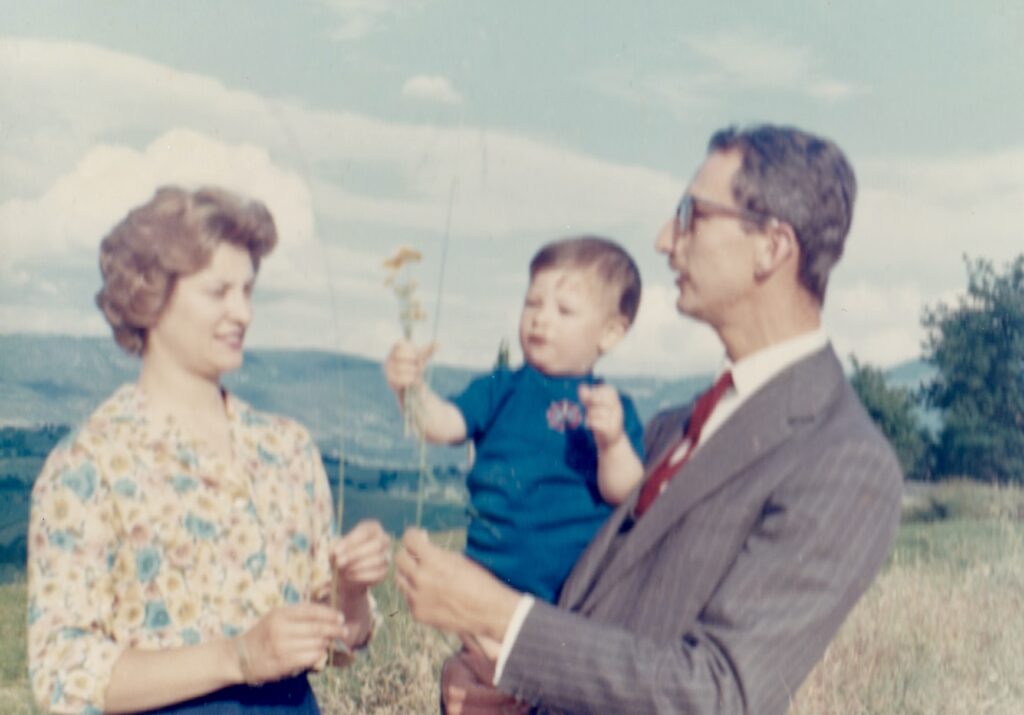 Et in Arcadia ego
Et in Arcadia ego
Right from the start, my equipage proved to be defective: my sandals slipped on the thick grass of the slopes and had little grip on the stumps of trees and fallen rocks; the brambles snaking along the ground treacherously attacked my calves, while those streaming from above clawed my arms and head. And all that pain for a rather modest harvest. At the risk of tossing out a hyperbole, blackberry-seeking gives me the feel of the whole of existence packed into an instant, and that single instant is a representation of life. So many countless summers of mine flashed through my memory: I was raised a country boy, and if I look back, I see the bramble-infested Italian roadsides. Especially the one that from our gate in Collevalenza passed under the mullioned window, cut out in the castle wall, and then led – running straight up the ridge, overshadowed by fat cypresses – to the village cemetery.
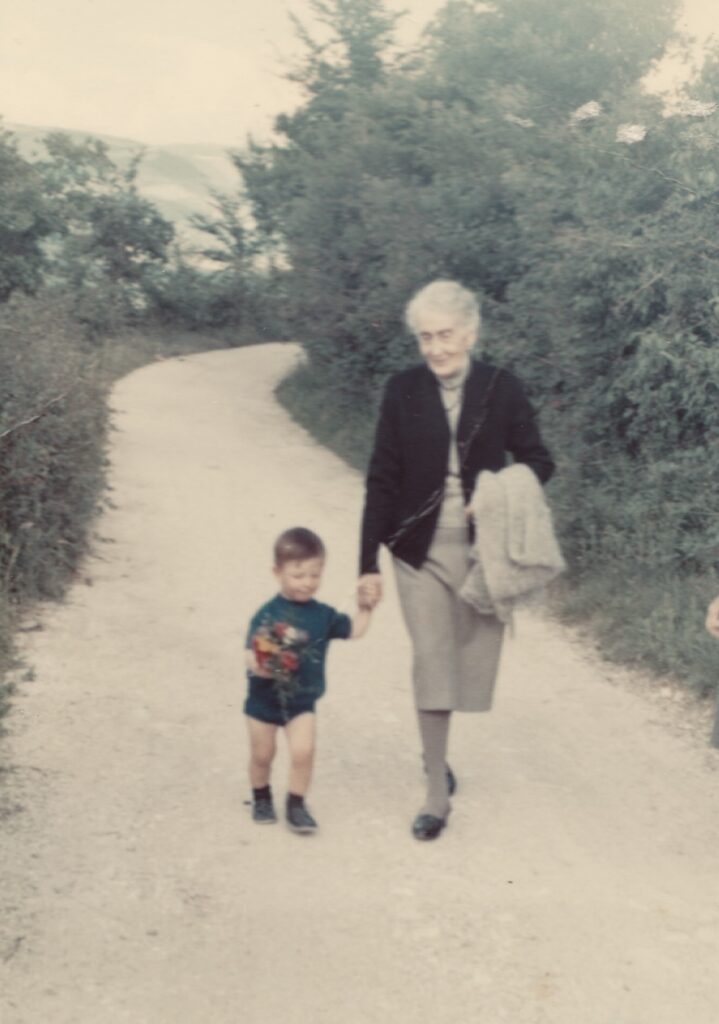
The long walk to the cemetery, with my great-grandmother
I considered how the place had remained the same, and in what ways it had changed, since the day I had been taken for a walk at age four with my next younger brother, Fabio, who on that gravelly road – at that time blooming with hawthorn – had been struck down and killed by a passing car. Since memory acts selectively – and no matter how many countless years have elapsed since I last trod there, it is likely that the road has since been paved – yet probably tends to yield the same view of the hill, free of the newer buildings, with the village huddled around the large cedars of our garden, as in the photo in which my mother and father – holding me as a mere babe – posed among the expansive fields during haymaking season, in the manner of a medieval tapestry.
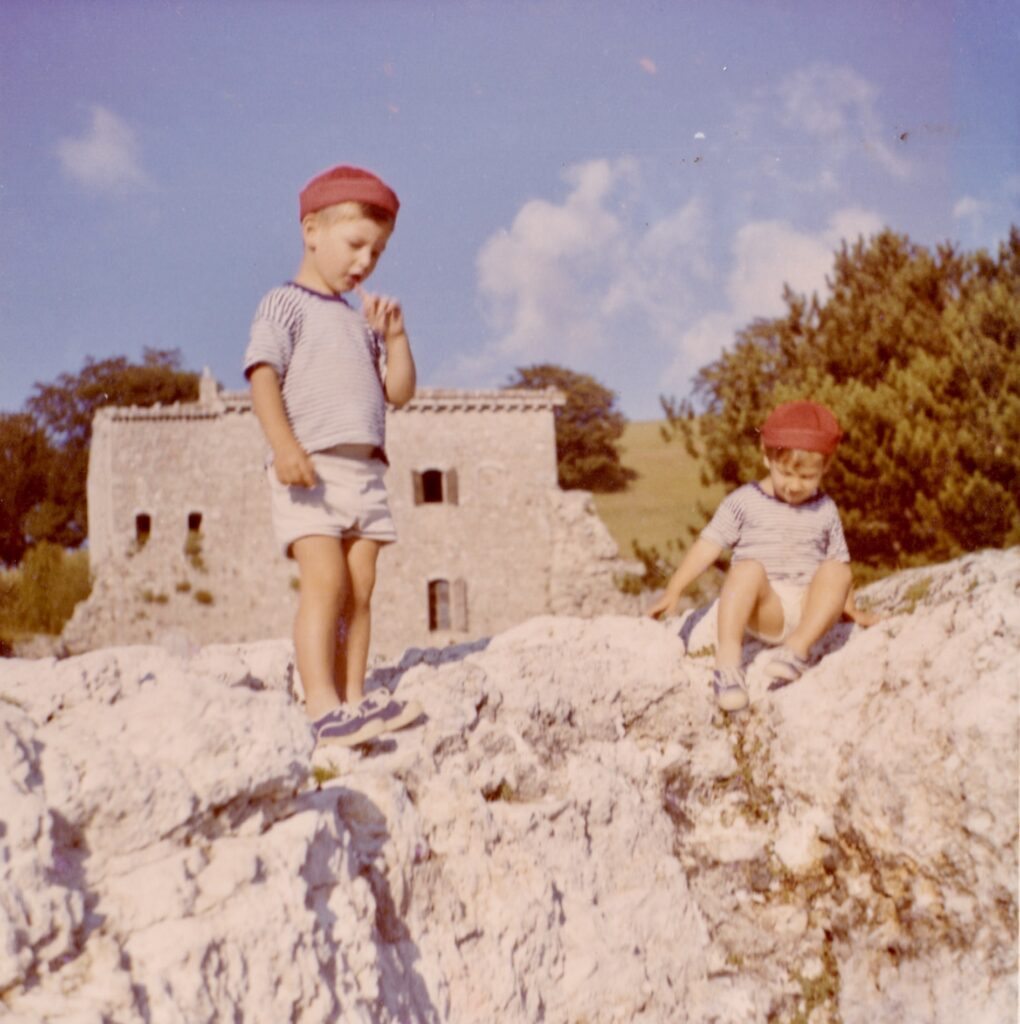
Fabio and me
Then too – although there was no special reason to get out of our garden for a walk – when the blackberries were ripe, we would go with baskets – siblings and cousins – escorted by grandma Margherita, down the lane to the graveyard. The purpose was to pick as many as possible, to make jam. My uncle’s family was as female-dominated as ours was male-dominated, but compared to us – we, restless, impertinent and always intent on spite – our cousins were never so uncouth, were angelic beings, smelling of lavender (befitting the decent maidens that the girls were) and not in a million years would emit farts, or pick their noses. And in their house everyone got along famously and loved each other unreservedly – like the protagonists in Little Women, while in our home, we could barely stand each other and fought all the time. My cousins proudly showed their full baskets to grandma, who praised them, and never failed to point out the disparity of results. They’d blissfully inhale the concentrated scent of the fruit without daring to take any; and, if anything, they’d eat just one or two because ‘they were shrivelled and ugly.’
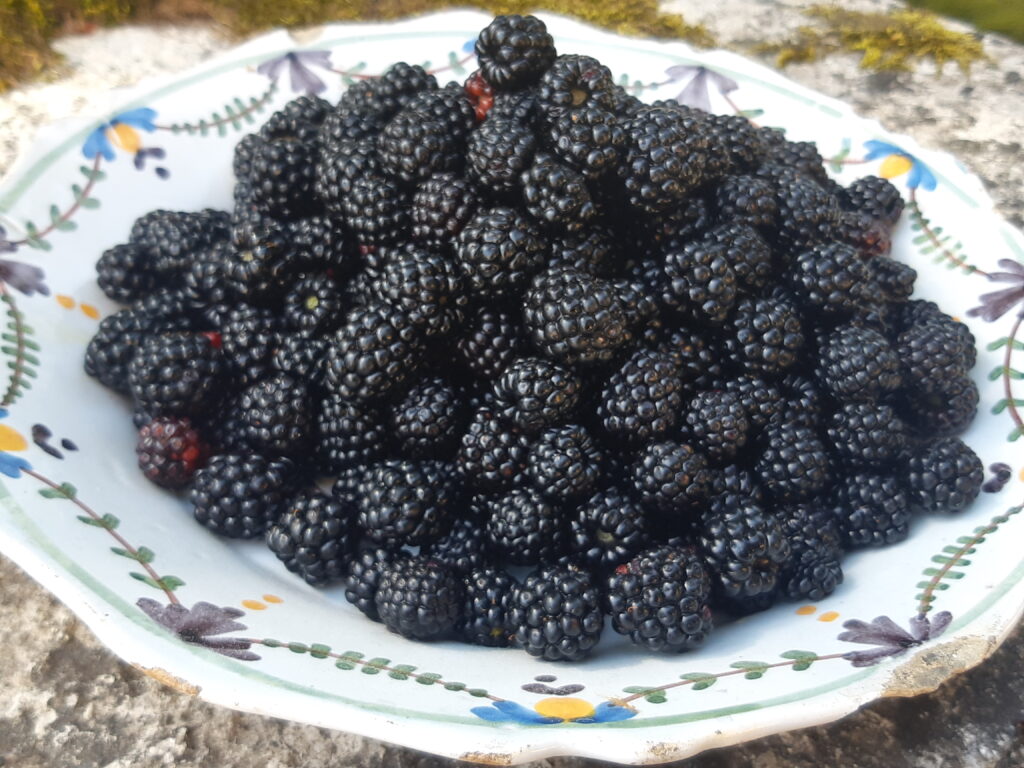
The haul from down the lane
Their other grandmother – she no more than an aunt to me – seldom took part in outings in search of blackberries, and only if those treks were on her own land. One time when she did accompany us, she stuck her sharp nose down to look into my half-empty basket, her pearl necklace swinging over it. ‘You haven’t made much progress!’, she chided. ‘He puts them all in his belly’, one of my cousins interjected. And after all these years, I don’t remember exactly what I did: maybe I nudged the girl a bit, and the basket she held under her arm spilled; maybe it was just a little push that tumbled her right into the thick brambles. Of course she started screaming. Her granny grabbed me by the arm. ‘I’ve never laid a hand on any of my grandchildren – but you! – I’ll gladly give you a smack! And with that she accompanied her malicious threat with a stinging blow.



